“For decades, the tobacco industry has been targeting African Americans, contributing to the skyrocketing rates of heart disease, stroke and cancer across our community. The tobacco industry is on a narrow quest for profit, and they have been killing us along the way.”
-Debora Brown-Johnson
President, Albany NAACP

New York State Media Campaign Raises Awareness of the Impact of Menthol-Flavored Tobacco on African Americans
The NYS media campaign>“It’s Not Just” exposes the tobacco industry’s intentional efforts to increase menthol product appeal to the African American community.
You can help!
- Follow us on Facebook and share our posts on personal and organizational social media. Share the It’s Not Just campaign on social media as well.
- Personal stories that are honest and emotionally compelling can make significant contributions to public health education, as evident in Tammy’s story to the right. If you or someone you know has a story to tell, we invite you to share it with us and explore ways to use your personal experience to help mobilize change.
- Do you belong to a congregation, service group or youth group that would like to learn more about the impact of menthol on the African American community? We can tailor a conversation or presentation to meet your group’s needs, including facilitated screenings of Black Lives, Black Lungs, a 15-minute film documenting Big Tobacco’s 50+ year campaign to transform menthol into a “black cigarette.”
- Do you prefer hard copies of materials to share with others? We can provide handouts, posters, and more to help you spread the word.
- Learn more about the history of menthol marketing to the African American community below.
Looking for another way to get involved? Let us know. We’d be happy to partner in whatever way we can.
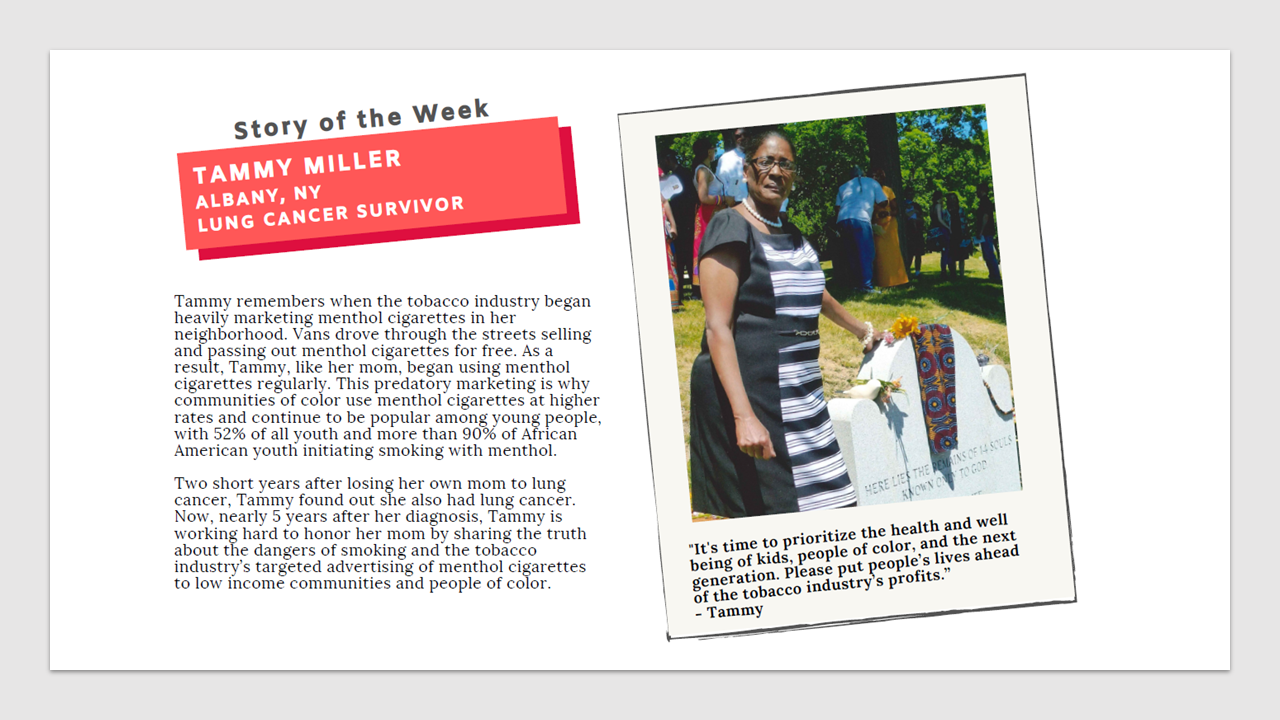
Menthol makes it easier to start and harder to quit
The disproportionate impact of tobacco use on African Americans is indisputable. Tobacco use contributes to the three leading causes of death among African Americans: heart disease, cancer and stroke. Blacks smoke fewer cigarettes on average and start smoking later than whites, yet are more likely to die of tobacco-related diseases. A significant contributor to these health disparities is menthol: Nearly 90 percent of African American smokers smoke menthol cigarettes, compared with 29 percent of white smokers.
A 2013 U.S. Food and Drug Administration report shows that the cooling and anesthetic effect of menthol allows smokers to inhale more deeply and hold the smoke in the lungs longer. As a result, menthol smokers show higher levels of nicotine addiction and decreased success quitting than non-menthol smokers, leading the NAACP to recommend that the FDA ban menthol in cigarettes.
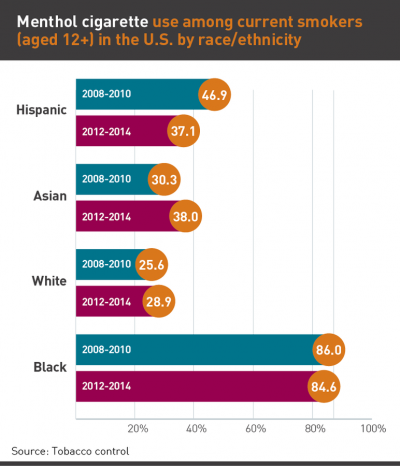
50+ Years of the tobacco industry aggressively marketing menthol to the Black Community
The documentary to the left, Black Lives, Black Lungs, explores the history, marketing tactics and impact of the tobacco industry targeting African Americans with menthol products. It documents what Dr. Phil Gardiner, Founding Member and Co-Chair of the African American Tobacco Leadership Council, refers to as the tobacco industry’s “African Americanization of Menthol.”
In 1953, only 5 percent of African American smokers used menthol. Today, nearly 9 in 10 Black smokers do. Evidence of the tobacco industry’s continued efforts can be found locally. Predominantly Black neighborhoods have more tobacco retailers per capita, more ads, more menthol, and higher smoking rates. See our report on Addressing Tobacco Use Health Inequities in the City of Albany and Addressing Tobacco Use Health Inequities in the County of Schenectady.
Your Involvement is important, now more than ever!
In April 2021, the Food and Drug Administration (FDA) announced that they would start proceedings to enact rules that would ban the sale, distribution and marketing of menthol cigarettes and flavored cigars, a decision that public health advocates have been demanding for more than a decade. CDTFC responded to the FDA’s call for public input by providing comment in writing on both rules which you can read here: Tobacco Product Standard for Menthol in Cigarettes and Tobacco Product Standard for Characterizing Flavors in Cigars.
While this is good news, federal rulemaking takes a long time and the tobacco industry can be expected to take actions to delay its implementation every step of the way. But communities don’t have to wait; state and local governments have the authority to do what the FDA has so far failed to do.
Across the country, nearly 400 localities have passed restrictions on the sale of flavored tobacco products; more than 200 of those policies include restrictions on the sale of menthol. Action at the state and local levels to end the sale of menthol-flavored tobacco products advances health and equity and saves Black lives.
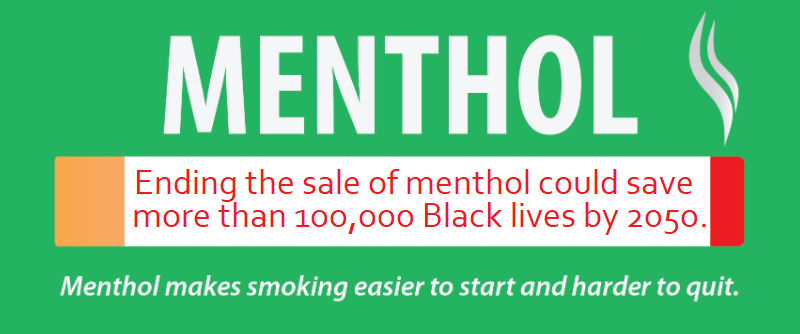
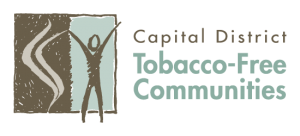
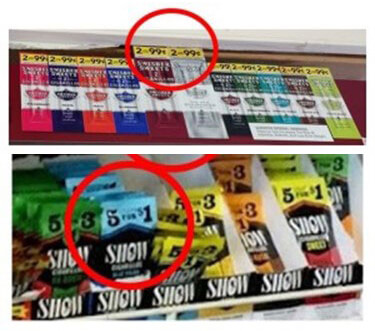
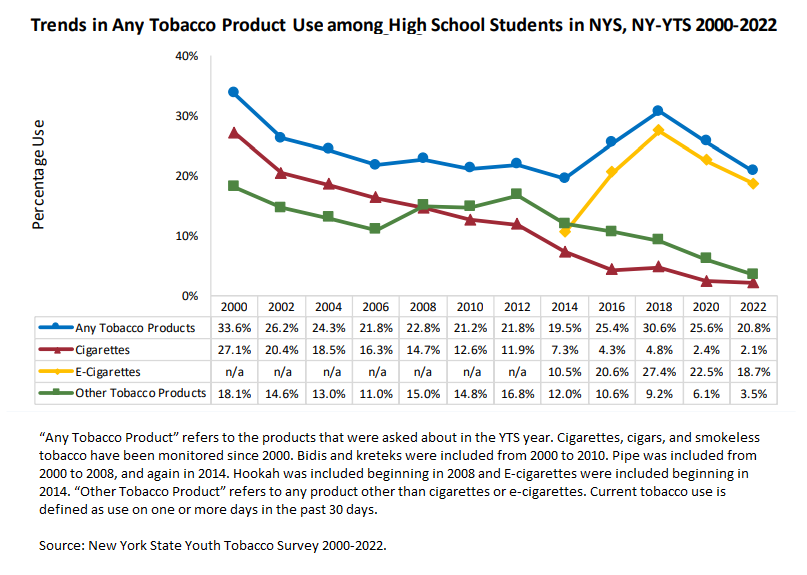
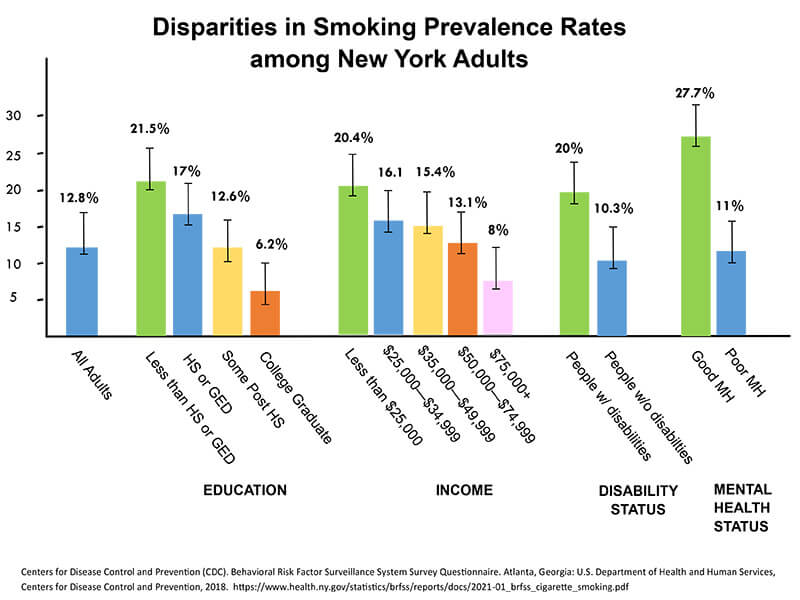
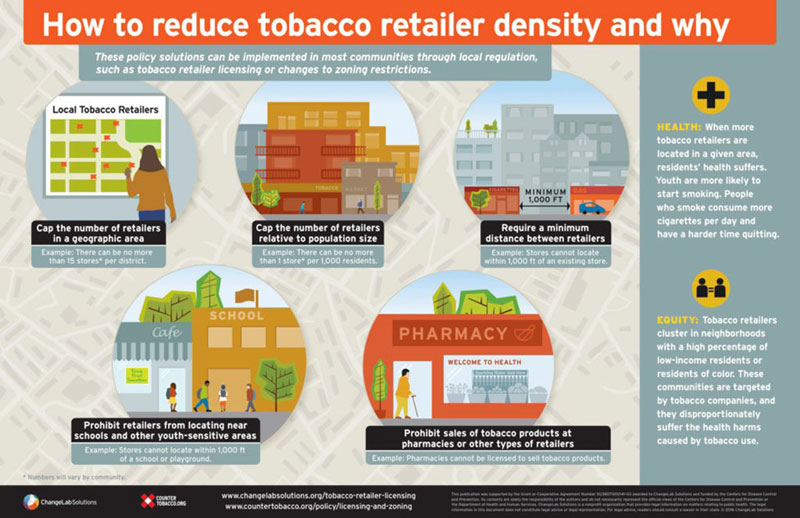
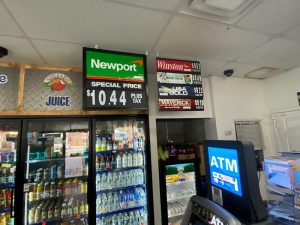
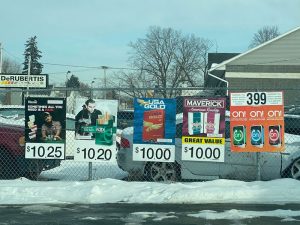
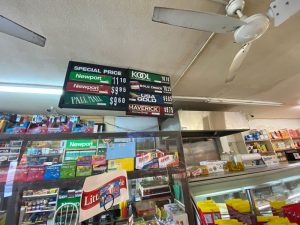
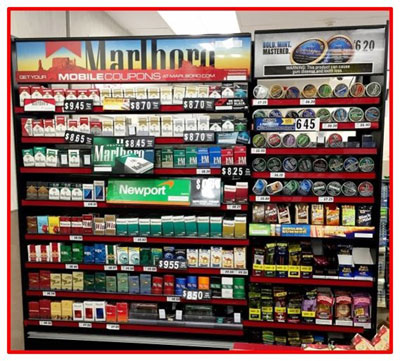 To the left is a typical tobacco product display. If you don’t use tobacco, you may not even notice, but kids do. Kids see. Kids notice. Kids remember. In fact, kids are more than twice as likely as adults to notice and remember retail tobacco marketing.
To the left is a typical tobacco product display. If you don’t use tobacco, you may not even notice, but kids do. Kids see. Kids notice. Kids remember. In fact, kids are more than twice as likely as adults to notice and remember retail tobacco marketing.